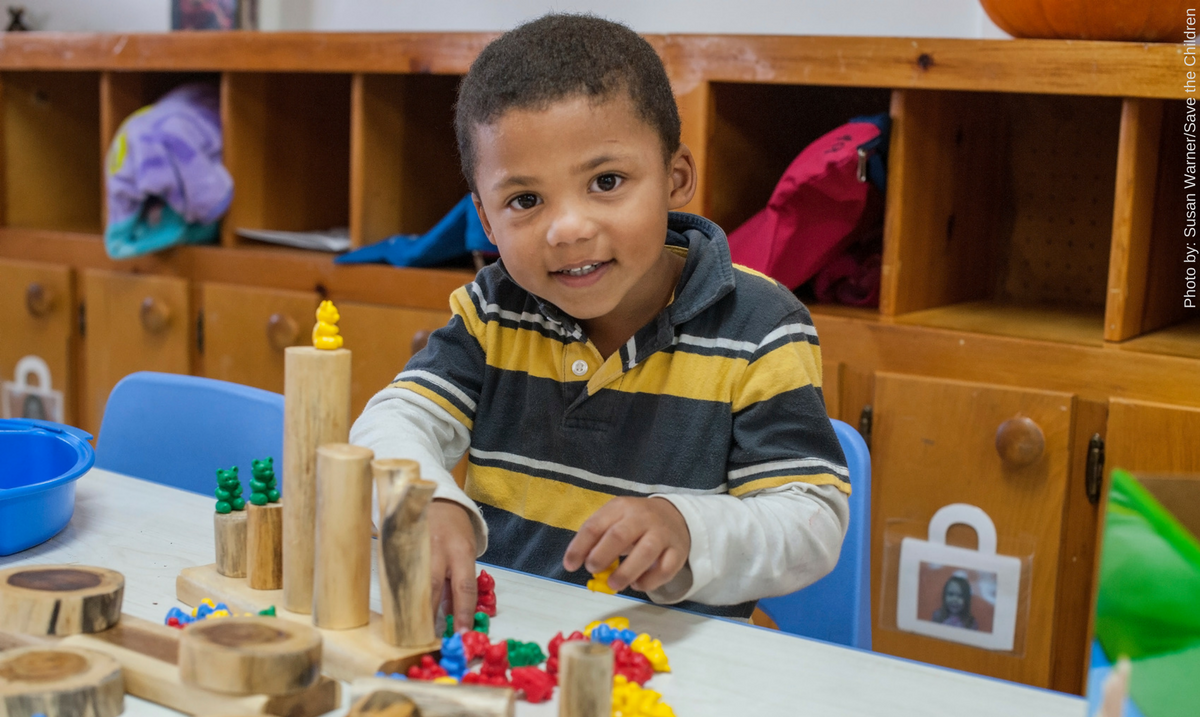
By Emily Daly
Before this year, I didn’t ever really think about preschool. I’m a 19-year-old college sophomore. Why would early education ever cross my mind? I have always cared about equal access to education, but it hadn’t occurred to me to think that the problems caused by the lack of that access start before kindergarten.
During my last four months as an intern at Save the Children Action Network (SCAN), I’ve learned that access to pre-K can make a huge difference – it’s what separates kids who can read at grade level by third grade from kids who later drop out of high school. It can give poor kids, who already have so much stacked against them, the opportunity to succeed.
While attending SCAN’s annual Advocacy Summit a few weeks ago, I was struck by an anecdote by one of the panelists, Eric Bridgett, a high school teacher from Mississippi.
He said that educators often play a reverse blame game.
High school teachers blame middle school teachers for their students’ failures, middle school teachers blame elementary school teachers, and so on, all the way down to kindergarten teachers blaming parents before kids even get to school. While I don’t think any educators or parents are to blame for students’ lack of success, I think there is a hidden point in that sentiment.
When we try to reach kids in secondary school, or even elementary school, it may already be too late.
Preschool and the years leading up to it are huge developmental moments in a child’s life. At SCAN, we point out that a child’s brain is nearly completely developed by age five. At that point, kids who come from wealthier backgrounds have heard 30 million more words than low-income children. Additionally, their parents tend to be more educated, and therefore spend more time reading to them and encouraging educational play. While we can’t magically change children’s socioeconomic status or their parent’s education level, we can take a stab at leveling the playing field via high-quality early childhood education.
For me, preschool was a time when I could play with friends and give my stay-at-home mom a couple hours break.
But for many children across the U.S., preschool serves as their first exposure to books or their only source of healthy food for the day.
After going to preschool, I then attended magnet schools from age 8 until I graduated from high school, receiving many more resources and opportunities than my non-magnet peers. I may have gotten my privileged public education based partially on merit. But who’s to say there aren’t thousands of other kids who could have as well, if they had been given the same strong foundation in life?
That’s why I was so excited for the third day of the Advocacy Summit. That was the day that I and more than 200 other advocates from across the country got to take Capitol Hill by storm.
In between meetings, I got to chat with other advocates and hear why they had traveled from all over the U.S. to be here. One of my fellow group members explained that through volunteering for Head Start, she had been able to watch as the child she assisted began to thrive. She said that in just a few months, his language and motor skills blossomed, making him unrecognizable from the boy she originally met. It was special to me to know that I was in the company of so many like-minded individuals, and I felt inspired to continue to fight to make early learning a priority.
Now that the Summit is over, it is essential to maintain the energy and activism it generated. I think that today, on National Kindergarten Day, it is more important than ever to keep Eric Bridgett’s words in mind. We don’t want teachers to be playing a reverse blame game. We want them to be astounded by their students’ preparedness for kindergarten and beyond. High-quality pre-K for every child will ensure that is the case.